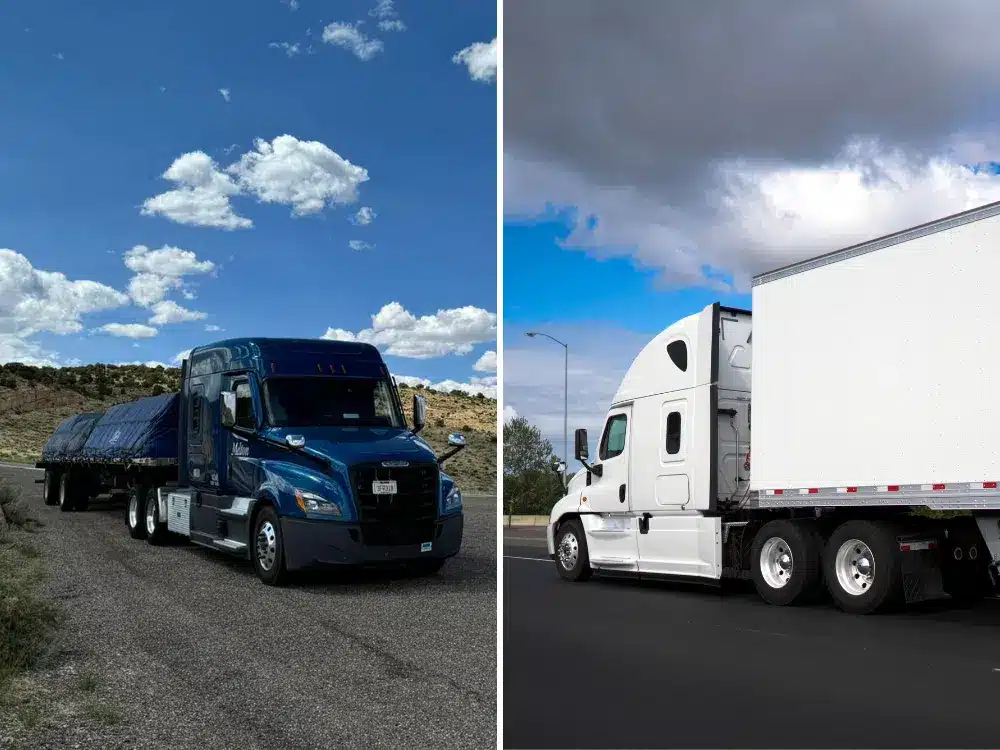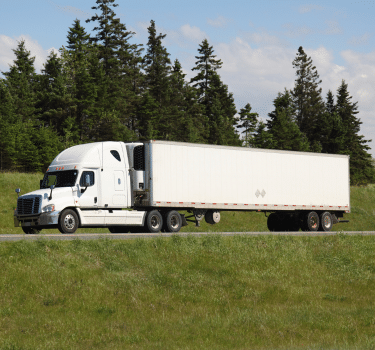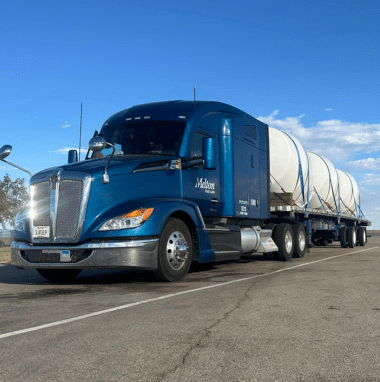
Driving Dry Van vs Flatbed: Which Career is for You?
If you’re a trucker just starting your career, you’re likely going to be faced with two opportunities for your first driving job: dry van trucking or flatbed trucking. While these are only two of the several types of trucking careers available, flatbed and dry van are some of the most widespread modes of transport, and experience with one or the other is usually required when looking to get into more specialized driving, like tanker or auto haulers.
Both flatbed and dry van have their advantages and disadvantages, and it can be difficult to choose between the two, especially for the uninformed. The best fit will depend on your lifestyle, preferences, and personal goals. Let’s first take a closer look at the key differences between flatbed and dry van trailers.
What is Dry Van Trucking?
Dry van trailers are completely enclosed trailers with a specific capacity. These loads can either be FTL (full truckload), where a single load fills up an entire trailer, or LTL (less than truckload), where several shipments that don’t require a full trailer ride in the same truck. Dry vans require freight to be loaded in and stacked in specific ways to prevent shifting. Typical dry van freight can vary greatly, from small consumer goods to small construction materials or furniture – almost anything non-perishable that fits within the weight and measurement requirements of your trailer is fair game.

What is Flatbed Trucking?
Flatbed trailers are an open-deck platform that, when loaded with freight, requires freight to be secured down with straps, chains, and/or tarps, to keep it in place and protected from the elements. These work best for loads that either don’t require the protection of a dry van trailer or won’t fit within a standard dry van. Flatbed freight can include commodities like roofing, lumber, steel, piping, glass, and more. One advantage of flatbed trailers is that loads can exceed the standard trailer dimensions, referred to as over-dimensional shipping. This could make flatbed the only option for large loads that can’t be shipped in smaller parts.

Pros and Cons of Dry Van Trucking
Pros:
- Consistent Freight and Routes: Most commercial goods that are shipped from the warehouse to your local store are shipped in dry van trailers. As a result, many carriers may have a fixed route and a pre-specified amount of loads it will ship each week. Supply and demand may lower and increase that freight, depending on the time of year, but it can be more dependable compared to other modes of transportation.
- Less Labor Intensive: While there may be some cases where you may need to assist in loading some pallets or shifting items to ensure adequate stacking, there are overall far fewer physical demands in dry van in comparison to other trailer types. Cargo is often loaded on via forklifts and pallets and unloaded in the same way – you may not even be required to get out of the truck depending on the company.
Cons:
-
Lower Pay– Though the CPM rate may not vary greatly between dry van shippers, there is a significant difference between the average pay for dry van jobs compared to other trailer types. With more available dry van trailers and carriers for shippers to utilize and negotiate with, the market rate will be lower, thus resulting in less pay going to the driver.
- More Competition- As the most common trailer type on the road, dry van driving is one of the most common positions sought after by new drivers, meaning that open availability for specific routes or contracts may be very limited, especially if you lack prior driving experience. You may end up taking routes or CPM rates that aren’t as favorable as you work to build your trucking resume.
Pros and Cons of Flatbed Trucking
Pros:
- Consistent Freight and Routes: Most commercial goods that are shipped from the warehouse to your local store are shipped in dry van trailers. As a result, many carriers may have a fixed route and a pre-specified amount of loads it will ship each week. Supply and demand may lower and increase that freight, depending on the time of year, but it can be more dependable compared to other modes of transportation.
- Less Labor Intensive: While there may be some cases where you may need to assist in loading some pallets or shifting items to ensure adequate stacking, there are overall far fewer physical demands in dry van in comparison to other trailer types. Cargo is often loaded on via forklifts and pallets and unloaded in the same way – you may not even be required to get out of the truck depending on the company.
Cons:
-
Lower Pay– Though the CPM rate may not vary greatly between dry van shippers, there is a significant difference between the average pay for dry van jobs compared to other trailer types. With more available dry van trailers and carriers for shippers to utilize and negotiate with, the market rate will be lower, thus resulting in less pay going to the driver.
- More Competition- As the most common trailer type on the road, dry van driving is one of the most common positions sought after by new drivers, meaning that open availability for specific routes or contracts may be very limited, especially if you lack prior driving experience. You may end up taking routes or CPM rates that aren’t as favorable as you work to build your trucking resume.
So…What’s the Best Choice for You?
Ultimately, choosing between flatbed and dry van comes down to a multitude of factors. Above all, personal preferences, lifestyle, and career goals play major roles in the decision-making process. If you are looking to make more money and stay active, flatbed trucking may be your best option, but if you are looking to maintain a solid routine without the additional physical demands, dry van trucking may work for you.
Leaning towards flatbed? Check out our flatbed driving jobs page to see how you can get started at Melton Truck Lines.
